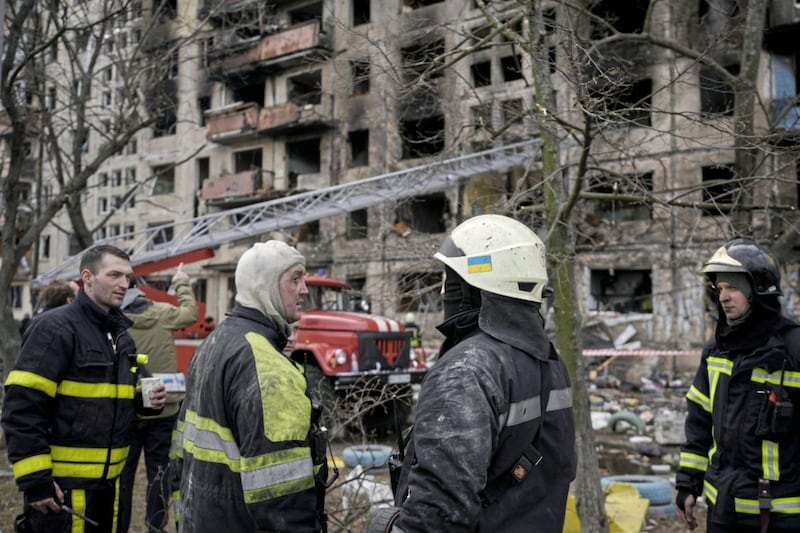THE economic consequences of Russian leader Putin’s invasion of Ukraine “are likely to be vast and dire”, a respected Belfast economist has reiterated.
Disruption and destruction wrought by the two combatants could by itself knock about half a percentage point off the growth rate of the world economy in 2022, which might otherwise have been about three or four per cent, according to Dr Esmond Birnie, senior economist at the Ulster University Business School,
“Once you allows for the knock-on effects of the war on the western economies and in the rest of the world, then the world economic growth rate could be less by about one percentage point - and that is perhaps a relatively optimistic scenario,” Dr Birnie said.
It comes as spiralling food and energy prices risk forcing a further income squeeze, with the typical Northern Ireland family likely to see their disposable income fall by at least £1,000 this year as the cost-of-living crisis deepens.
The Resolution Foundation think tank says that the conflict in Ukraine means there is heightened uncertainty around the UK’s economic outlook, with the only certainty being that it has deteriorated markedly.
The conflict will cause higher inflation – now likely to peak at over eight per cent – which will in turn will cause higher debt repayments for the British chancellor.
Indeed the conflict is also likely to weaken GDP growth and increase the probability of a recession.
“Unfortunately, the cost-of-living crisis continues, with petrol/diesel advancing towards £2 a litre and home heating oil going above £1000 for 900 litres,” Dr Birnie said.
One consequence of the Russian-Ukrainian war is, of course, that many countries are confirming major increases in defence spending.
In the UK, levels of defence could increase from the current 2.2 per cent of GDP up to 4 per cent or beyond (not far off the 5 per cent UK military spend during the Cold War.
“Unless other areas of public spending can be reduced, which is unlikely, or levels of borrowing increased again, not straightforward post-Covid, a lot of this extra defence spending will translate into higher taxes, so some of the current squeeze on household living standards is likely to be a permanent fixture,” he said.
But on the plus side, Dr Birnie predicted higher military spending will bring market opportunities for some Northern Ireland businesses in manufacturing or services.
“The shipyard could conceivably be part of bids for Royal Navy work. Local aerospace is already involved in researching unmanned next generation aircraft. and there are likely to be orders for the missiles produced by Thales,” he said.
“And while we are likely to be looking at a future in which, to an extent, ploughs are being turned into swords or tanks, the way the Barnett formula works ensures that higher UK defence spending translates into a bigger block grant for Stormont. Unintended consequences are always significant.”


